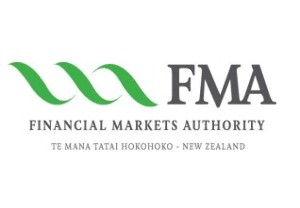Fund managers silent on FMA’s hard-hitting fees and commissions report
Fund managers were yesterday ducking for cover when asked for on-the-record comment on a scathing FMA report, released on Wednesday, about fees and commissions charged to investors in KiwiSaver and other managed fund schemes.
Friday, May 20th 2022, 8:28AM  1 Comment
1 Comment

In the regulator’s sights are trail commissions – the ongoing payments made to financial advisers and other intermediaries for introducing investors to managed funds schemes.
Specifically, the FMA is concerned about the non-transparent way these commissions are paid out to third parties and then billed to all scheme members as part of a management fee, regardless of whether the intermediary introduced investors to the scheme or whether investors joined up directly. And the FMA appears equally concerned about the arguments used by some fund managers to try to justify these decisions.
The language and tone of the FMA’s Value for Money report at times borders on aggressive, particularly for a government department. There are words like “nonsense” and “lazy”, and it is clear the gap between the regulator’s expectations and industry practice is wide.
But since the report’s release, fund managers have not appeared keen to publicly debate the issues. Some were “too busy”, some offered up a PR person for comment rather than a fund manager, some wanted more time to consider their response and others promised to call back but didn’t.
The report is based on a pilot the FMA has been running with a group of MIS (managed investment scheme) managers and 14 funds to test how well the sector has been applying the regulator’s value-for-money fees guidelines, published in April last year. Supervising the pilot were Covenant Trustee Services, NZ Guardian Trust, the Public Trust and Trustees Executors.
While there is some good news – the FMA found “genuine, repeatable competence” among the managers of both active and passive funds, this was undermined by “the drag of fees” which reduced the benefit of this competence to investors.
“Fee levels were substantially drive by costs paid to external parties, such as trail commissions to financial advisors and other managers, and performance fees to underlying investment managers,” the report said. These costs also impacted on the profitability of some participating MIS managers.
The FMA also found some MIS managers were using inappropriate market indices – for example, using the NZX 90-day bill rate as the market index for all the fund’s fixed interest exposure. The FMA notes its Financial Market Conduct Regulations 2014 require MIS managers to use appropriate market indices.
On this, there was pushback from the pilot’s participants. The FMA says feedback suggests “resistance and scepticism” to the use of market indices as a performance indicator. But it dismisses much of this as a “fundamental misunderstanding of the purpose of a market index” and wants more discussion with the industry to figure out a way forward that is in the best interests of investors.
The FMA’s most strident criticism is directed at ongoing advice fees and trail commissions and the way investors are required to pay for them.
The mischief, as the regulator sees it, is that trail commissions are bundled (or “embedded) in the management fee charged to all investors in a scheme, including members who joined the scheme directly rather than being referred by an advisor or another intermediary.
The FMA says it is common for MIS managers to pay substantial initial and ongoing sums to third parties to acquire investors. But these intermediaries rarely offer ongoing advice and disclosure of this to scheme members is “deficient” or “non-existent”.
When the FMA tried to discuss this during the pilot, it was told by some managers that they, not their investors, were picking up the tab for trail commissions because they were paid from the manager’s fee reserves.
“This is nonsense,” the FMA said. The management fee was paid by the members. Its preference, as outlined in the 2021 guidelines, was for fees for advice to be charged separately to members.
Other MIS managers said they did not itemise costs like marketing that contribute to the management fee, and trail commissions were no different. But the FMA said trail commissions were “fundamentally different” from marketing costs as, unlike marketing, commissions produced a concrete result.
| « FMA ramps up opposition to trail commissions | Tough times ahead for NZ economy: Nikko economist » |
Special Offers
Comments from our readers
Sign In to add your comment
| Printable version | Email to a friend |



